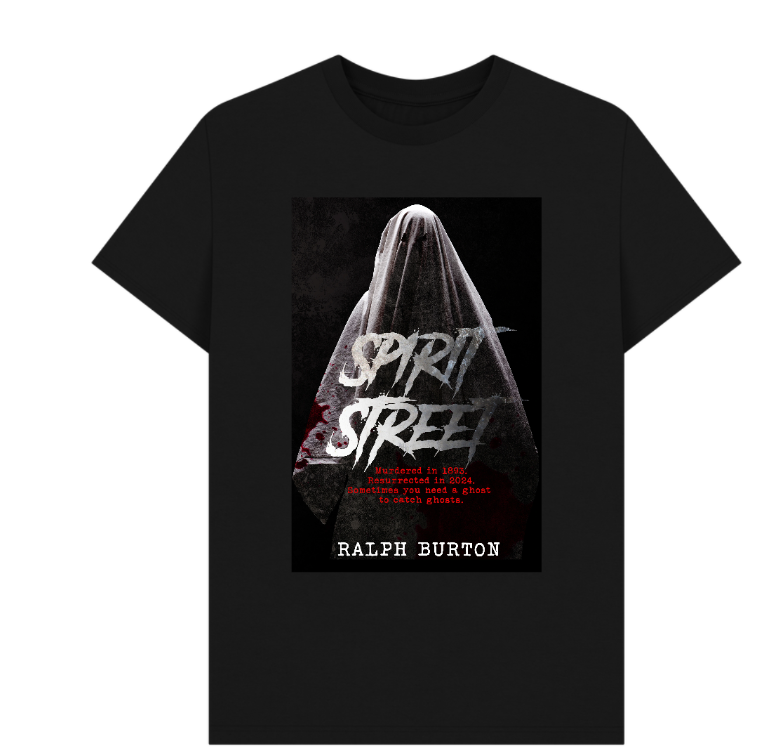The Making of Stand and Deliver: An Introduction
- Ralph Burton

- Sep 13, 2022
- 4 min read
Updated: Jul 26, 2023
A steampunk sci-fi

I had a blast writing this steampunk sci-fi, even as my life was going to shit at the time. No, really, my life at this time (in the autumn of 2020) was slowly disintegrating, just as this book really took off and went to the stars. Writing this epic sci-fi novel, one which really luxuriated in outer-space and the fantastical, probably hindered my sense of logic and decision-making process. Oh well!
Anyone who writes a sci-fi book must have great fun, and indeed I did, filling in all the small little details with the world-building. It was truly fun coming up with all the names for the pubs on Thief's highway tour and all the gadgets that Lord Dashiell would possess. I loved the narrative voice, and my main character. Now, I get the criticism that calling a non-binary character Thief is a bit reductive, maybe even harmful, but obviously no offense was meant. The character is a highway thief and it made more sense to call them Thief rather than anything else. At the end, they become Star and take on a more positive identity. I loved having a non-binary character; it was truly radical. I obviously get the Own Voices thing, but I don't want to write books about characters who look and sound like me. A book, especially a sci-fi book, should be for everyone. It was great having a LGBT character in a sc-fi book (the narrator of the book, no less), true to the spirit of the very politically conscious Doctor Who.
I loved reading the Doctor Who novelizations when I was younger (in particular The Clockwise Man by Justin Richards), though, that was nothing compared to how much I loved the series. It's pretty obvious reading this book, or even just glancing at the synopsis, that I ripped off Doctor Who. I did love the old Who, but will admit I've not caught up much with the series since about the mid-Matt-Smith era. For me, the old episodes like the Tom Baker ones, the Patrick Troughton ones, William Hartnell, Peter Davidson, Jon Pertwee, Sylvester McCoy, those were the ones that I loved. Colin Baker is an unloved Doctor, although then again his episode "The Mark of the Rani" is my all-time favourite episode and one of the best sci-fi stories ever. The Luddite-theme even bears something of a resemblance to Stand and Deliver with its romantic age setting.
While I ripped off Doctor Who, Lord Dashiell is like a twisted version of Doctor Who with his self-pity and his disfigured companions living in the woods by the house. It was fun to explore the things the BBC would never dare do. It was natural Dashiell's adventures, dangerous as they were, would leave a lot of injured and mistreated people behind.
Another influence, perhaps not as expected, was the Phantom Menace and its obsession with politics. That movie so unusual for a sci-fi, and for a movie in general, in that it contains quite heavy political discussion about whether something is going to happen or not. This boggled a lot of people, and I can see why someone would say this was a negative quality to the film, and as the film is meant for children, I guess having this heavy political discussion kind of is. That said, the Iraq War three years later with its intense debates over whether to invade or not, that put the Phantom Menace into a whole new context. Can you imagine attending the political debate over whether or not they are going to invade your country? That informed the Jupiter scene in this book, where Thief attends the congress with Dashiell and Lady Dana and has to listen to stuffy politicians squabbling over something that will most likely kill a lot of people.
The basis for the colonial aspects of this book wasn't Iraq, it was my own country, Britain, and our bloody colonial history. The Nightingale Company is, of course, based on the British East India Trading Company. The stretch of the book where Thief puts on a Nightingale disguise and finds themselves having to participate in brutal atrocities was meant to give the reader a level-view of what the Nightingale Company's work actually entails, all the while seeing it through a complex angle. Thief is wearing the uniform, in effect cosplaying as this brutal soldier. Did they enjoy it? How are they feeling being the oppressor?
The punch of the writing in this book owes a lot to Ray Bradbury. My guy. Heart-squeeze. I do adore Bradbury and his writing is absolutely spectacular. Obviously, this can't measure up but I think I do a good enough job.
The writing also owes a strange debt to the Bruce Springsteen autobiography Born to Run. Springsteen loves the CAPS-LOCK and uses it whenever he wants to convey GRANDNESS, nothing wrong with that obviously; as I basically nicked this trick and used it in my own book. Springsteen's flourish does have some literary roots, as I've seen Stephen King and George R.R. Martin also used the caps-lock quite frequently. If my memory recalls, I use it in the book mainly to convey the sounds of machinery. I think, when you're looking for grandness, the sound of steampunk engines shooting into space really fits the bill.
_edited.jpg)



Comments